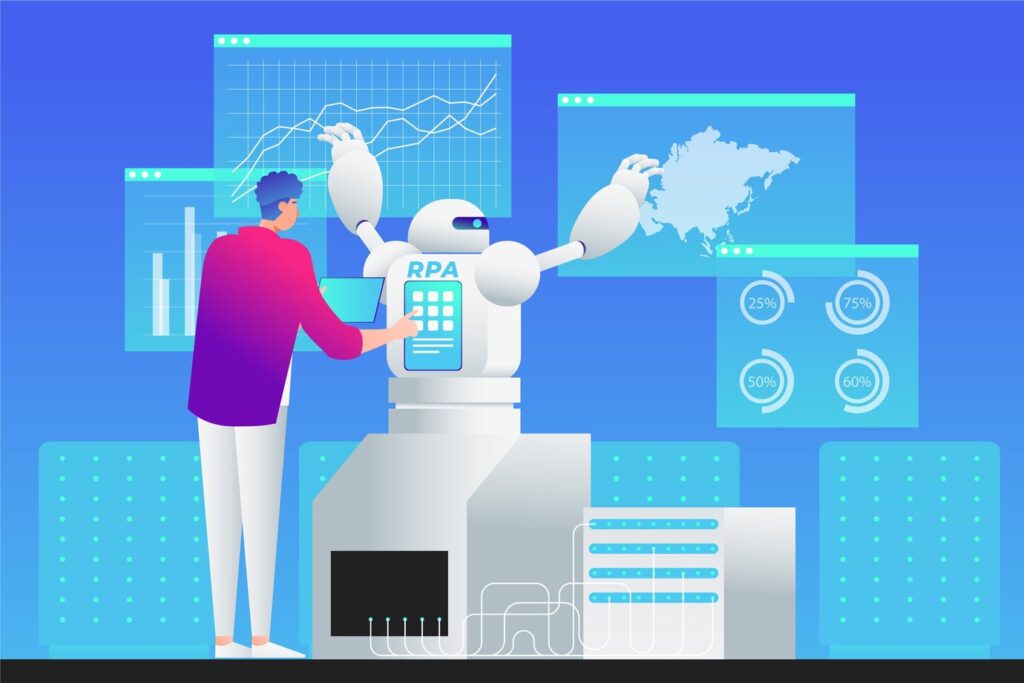Communication in Health and Social Care. Great Course. Very Easy to Understand
MSc Artificial Intelligence

MSc Artificial Intelligence
Overview:
Artificial intelligence is an emerging field having a strong demand for AI engineers and Machine learning Engineers. Speech recognition, image processing, business process management, disease diagnosis and data feature engineering are just a few of the jobs that artificial intelligence enhances and makes simpler.
The MSc Artificial Intelligence at USW is a course aimed at graduates who would like to broaden their existing knowledge and open up a new career path. This course is intended to help students gain a solid knowledge of the various applications of AI, including language transformation, sentiment analysis, and visual recognition. Using Visi Rule and Python will also teach you about another area of artificial intelligence, such as the knowledge base system.
Online application form
Information requested on this form should be completed in as much detail in order to process your application successfully. All fields marked * must be completed.
Apply Now
Entry Requirements
This course is designed for graduates with a minimum 2:2 Honours degree or equivalent in a computing or strongly related subject.
Applicants should be proficient programmers.
International Entry Requirements
This course welcomes international applicants and requires an English level of IELTS 6.0 with a minimum of 5.5 in each component or equivalent.
WHAT YOU WILL STUDY
Modules include work based on research by the Computer Science and Artificial Intelligence Paradigms (CSAIP) research group.
- Project Management and Research Methodology – 20 credits
Project Management and Research Methodology provides students with the opportunity to plan a project using appropriate methods, techniques and tools, taking into account relevant risks and ethical issues, and undertake a literature review and other development activities to improve their understanding of the situation and/or produce organisational change. - Principles of Computing – 20 credits
Principles of Computing provides students with the opportunity to demonstrate a comprehensive understanding of current developments in computer technology, programming and database systems and to apply appropriate practices, tools and techniques to produce a solution to a problem where there are many interacting factors. - Computational Applications Of Artificial Intelligence -20 Credits
Computational application of artificial intelligence provides students with the opportunity to gain practical knowledge of computational applications used in the field of artificial intelligence and managing complex data sets such that they can assess the practical situations and interpret real-world applications using the concepts of statistical analysis and its value in Data science. - Knowledge-Based Systems – 20 credits
Knowledge-Based Systems provides students with the opportunity to gain a broad introduction to applicable artificial intelligence alongside practical skills designing and developing knowledge-based systems used to support human decision-making, learning and action, and appreciate their implications to society. - Machine Learning and Autonomous Systems – 20 credits
Machine Learning and Autonomous Systems provides students with the opportunity to build a foundational understanding of machine learning and autonomous systems, approaches to their design and development, areas of application, available tools and their implications to society. - Deep Learning – 20 credits
Deep Learning provides students with the opportunity to build on their knowledge of machine learning and explore the field of deep learning, areas of their application, approaches to the design and development of solutions to problems and available tools. - MSc Project – 60 credits
Teaching
This AI masters is aimed at graduates with engineering, science, IT, mathematics or business backgrounds who have strong numeracy and IT skills.
It is delivered in four major blocks to offer an intensive but focused learning pattern. Full-time students will typically spend 12 hours in classes and 24 hours outside of classes each week.
If you choose to study part-time, this is reduced to around six hours each week. You will study through lectures, tutorials, practical sessions, seminars and projects.
You will need to spend a significant amount of time working independently, reading and preparing for assessments.
You will also work on a significant research project of your own choice, where strong independent thinking, critical analysis and project management skills will be important.
Assessment
Assessment is primarily by coursework (94%), varying from a research-style paper or essay to practical assignments.
You will also work on a significant research project of your own choice, where strong independent thinking, critical analysis and project management skills will be important.
COURSE DETAILS
Accreditations
Accredited by BCS, The Chartered Institute for IT for the purposes of partially meeting the academic requirement for registration as a Chartered IT Professional.
Facilities
Practice is so important in gaining understanding of complex machine learning techniques, which is why we have a range of high specification computer laboratories including workrooms dedicated to our masters’ students.
These facilitate a learning environment where you can work individually or in groups and as they are located close to the staff offices.
Our facilities are at the cutting edge of computer development, meaning you’ll use the latest technologies in high-spec labs.
You’ll also find dedicated spaces on campus for computing students, including Windows, Apple Mac, Linux and Networking suites, all with the latest software.
Additional Costs
As a student of USW, you’ll have access to lots of free resources to support your study and learning, such as textbooks, publications, online journals, laptops, and plenty of remote-access resources. Whilst in most cases these resources are more than sufficient in supporting you with completing your course, additional costs, both obligatory and optional, may be required or requested for the likes of travel, memberships, experience days, stationery, printing, or equipment.
CAREERS
Graduates with an MSc Artificial Intelligence will be able to apply for jobs in artificial intelligence, competitive intelligence, business intelligence, threat intelligence, cyber intelligence, computational intelligence, customer intelligence and marketing intelligence.
Example job titles include machine learning engineer, artificial intelligence engineer and business intelligence data engineer.
Many of our computing graduates commence a computing research degree here at the University, and there are PhD research opportunities in artificial intelligence within the school and beyond.
Once you complete your degree USW offers a startup studio(Opens in a new tab) and dedicated incubation space and the opportunity to grow on freelance work.
Fees
Full time
- 12 to 18 months
£7,250
You’ll study 9 modules in total (approx. 37 hrs/week).
Part time option one
- 12 to 18 months
£4,250
You’ll study 6 modules per year (approx. 25 hrs/week).
Part time option two
- 12 to 18 months
£5,500
Have a question about our professional qualifications?

Contact us about our professional qualifications
If you have any questions about our professional qualifications in finance and banking, please contact our customer services team.
Call us
- +44 (0) 203 771 5653
- admissions@westfieldcollege.co.uk
What Our Students Have To Say
Hi, I recently started Access to Higher Education Diploma (Nursing and Midwifery) course with Westfield College.
--Komal Kiran Galaria
DesignerMy experience with Westfield College is great. The supervisor and the admin team are proactive and efficient.

